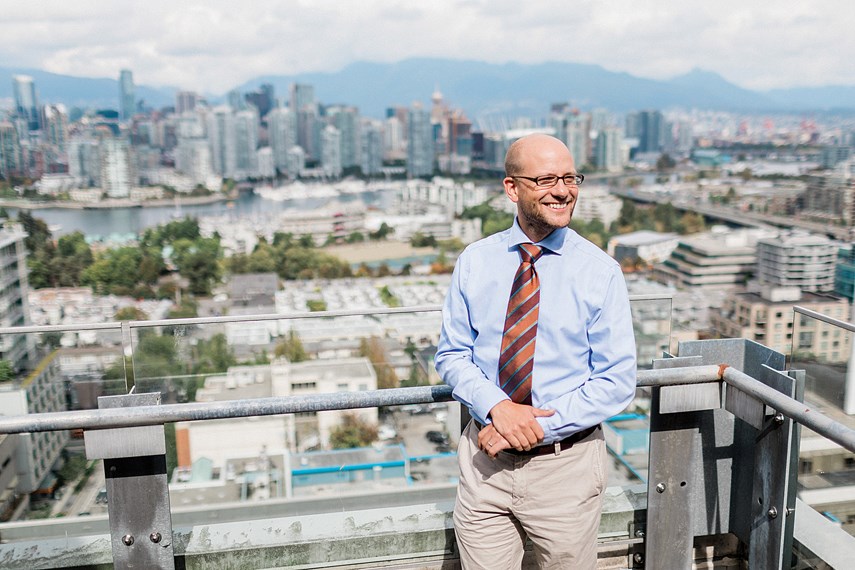They’re the worst kind of infiltrators.
When a patient is suffering Hodgkin lymphoma, 99 per cent of the cells in a lymph node are normal.
“The few cancer cells that there are, they interact with the normal cells of our body to create something that we call the tumour micro-environment,” explains Dr. Christian Steidl, director at the Centre for Lymphoid Cancer at the B.C. Cancer Agency. “The cancer cells have figured out how to use the normal cells as a support system.”
Figuring out the unique biology of those freeloading cells is one of the great challenges in treating Hodgkin lymphoma.
“We do cure, roughly, 50 per cent of all of our lymphoma patients,” Steidl says. “But we don’t know why we don’t cure all of them. ... Understanding relapse is the most important task at the moment in research.”
However, Steidl may be getting closer to answering that question.
The North Vancouver cancer researcher was recently awarded a $1.5 million funding grant through the Allen Distinguished Investigator Award, named for the late Microsoft co-founder, Portland Trail Blazers owner, and Jimi Hendrix museum founder Paul Allen. The award was announced Oct. 31.
Steidl shares the award with fellow investigator Dr. Akil Merchant, assistant professor of medicine at the University of Southern California Keck School of Medicine.
The grant is a huge boost in understanding Hodgkin lymphoma, a blood cancer that typically strikes adolescents and young adults.
“What is very unique about Hodgkin’s lymphoma is that the actual cancer cells are only in the minority,” Steidl says. “Cancer cells can hijack many of our body’s natural processes to help themselves grow and spread. To better understand this phenomenon – and ultimately improve diagnoses and treatments for patients – we will study lymphoma patients’ biopsy samples before and after cancer relapse, cell by cell.”
His work is focused on cancer genomics and cancer imaging, Steidl says.
“My proposal is very much focused on deciphering what’s going on in the single cell,” he explains.
It’s a question that fascinated Steidl since his days as a medical doctor specializing in oncology.
Steidl ceased his medical practice in 2006 in order to devote his focus entirely to disease biology in the hopes that he can give oncologists options he didn’t have.
His decision was prompted by “pure interest in science,” Steidl says. “I wanted to focus on understanding disease and it is difficult to maintain both worlds so I made a clear-cut decision to focus on being a scientist.”
His lab is largely focused on genomics and sequencing techniques, he says. The aim is to translate the lab’s findings into better diagnostic tools and superior research.
“You take basic discoveries to the bedside,” he says.
While the medical understanding of lymphoma relapse – at least in terms of underlying biology – was once rudimentary, progress is being made through collaboration, Steidl says.
His lab has been working with researchers focused on ovarian cancer and breast cancer, Steidl says, explaining that much of the research community faces “parallel questions” in terms of cancer treatment.
“If you know what the sub-types are and what the unique features of these sub-types are you can tailor our treatments much better to these sub-types,” he says.
Together, they’re laying the groundwork for personalized medicine capable of understanding individual immune privilege.
Flush with the funding, Steidl is confident the lab can push their “research boundaries” far beyond what the ordinary funding model would allow.
“The funding means that we can do cutting edge science,” Steidl says. “We can open up the new frontier of research.”
The Allen Distinguished Investigator program began in 2010 to fund research that could “significantly advance (the) understanding of biology,” but is less likely to get support from traditional funding resources, according to a release from the B.C. Cancer Foundation.



